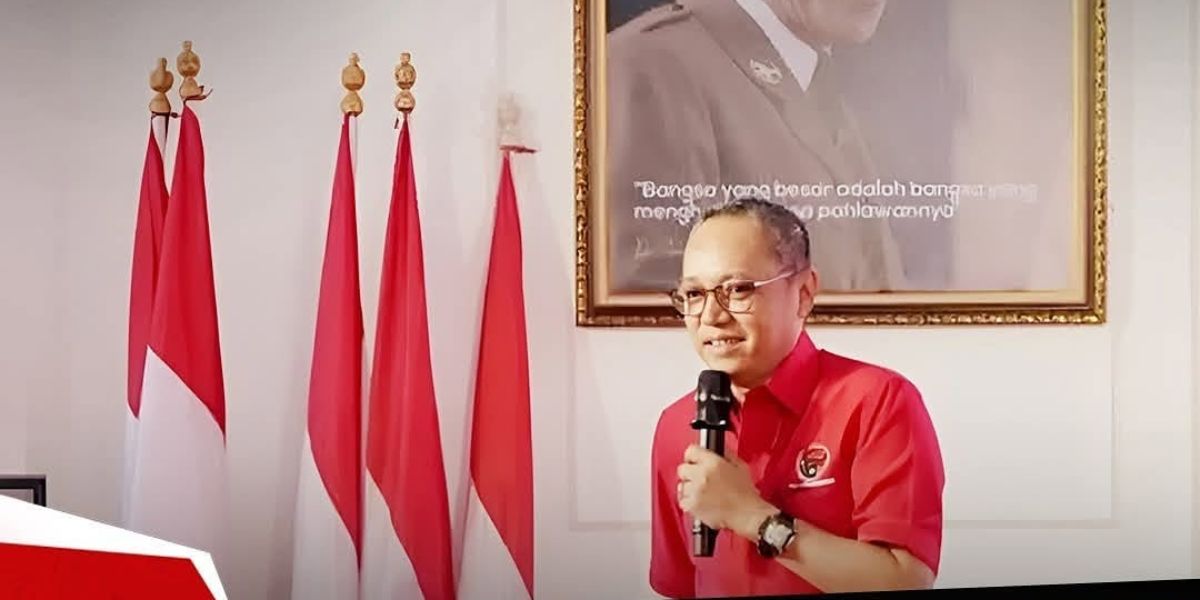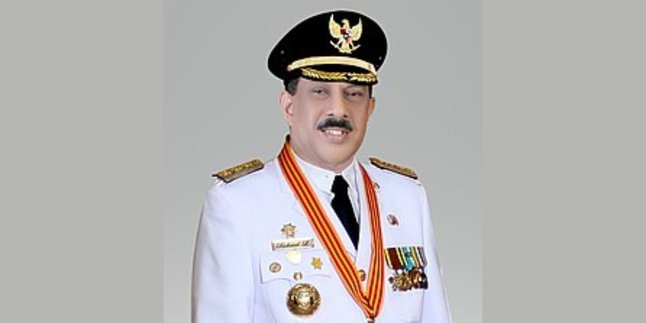Kapanlagi.com - The increase in Value Added Tax (VAT) from 11% to 12%, which will take effect on January 1, 2025, has become a hot topic among the public. This policy has sparked various debates, especially regarding the origin of the proposal and its impact on the purchasing power of the people. Many are curious about who actually first initiated this regulation and whether this policy is still relevant to the current economic conditions.
The Chairman of the Rumah Keluarga Bersama (RKB), Wigit Bagoes Prabowo, revealed that this policy is a legislative product from the 2019-2024 era. Undoubtedly, this issue involves various political actors, including major parties in the Indonesian House of Representatives (DPR RI).
On the other hand, the Chairman of the DPP PDI Perjuangan, Deddy Yevri Sitorus, firmly denied that the initiative for this increase came from his party. This statement opens up further discussion about the long journey of this policy, from the legislative table to finally becoming an official regulation.
1. The Beginning of Policy Proposal
On May 5, 2021, President Joko Widodo sent a Presidential Letter numbered R-21/Pres/05/2021 to the Indonesian House of Representatives, marking the beginning of the 12% VAT policy that captured public attention. This letter became the basis for discussing the revision of the General Provisions and Tax Procedures Law (KUP), which later became known as the Law on Harmonization of Tax Regulations (HPP).
Shortly thereafter, on June 28, 2021, Commission XI of the Indonesian House of Representatives held a meeting with the Minister of Finance and the Minister of Law and Human Rights to form a Working Committee (Panja) that would explore, discuss, and align the contents of the bill.
Intense discussions between the government and the legislature took place, with great hopes that the HPP Law could serve as a bridge to increase state revenue, although there were still concerns about its impact on small communities.
2. Discussion in Commission XI and the Working Committee of the Indonesian House of Representatives
On September 29, 2021, the atmosphere in the Plenary Meeting of the Indonesian House of Representatives (DPR RI) became increasingly heated as the results of the Working Committee's discussions were presented. The Chair of the Working Committee, Dolfie OFP from the PDIP faction, revealed that eight factions, including PDIP, Gerindra, Golkar, and NasDem, agreed to proceed to the next stage of discussions. However, dissenting voices came from the PKS faction, which was concerned that this policy would burden the public.
This decision by the Working Committee became an important milestone in the journey of the HPP Law, although it was not without criticism from the public, who highlighted transparency issues and purchasing power as the main focus of discussion at that time.
3. Ratification of the HPP Law as Legal Basis
On October 7, 2021, the DPR RI made history by ratifying the HPP Bill into law during the 7th Plenary Meeting of the First Session of the 2021-2022 Legislative Year. Under the leadership of the Chair of the DPR RI, Puan Maharani, this ratification process became a crucial moment in Indonesia's tax reform.
However, behind this achievement, debates continued to emerge, particularly regarding the challenges of implementing the new regulations amid the ongoing COVID-19 pandemic.
4. Public and Government Response to the Increase in VAT
Since the enactment of the HPP Law, the policy of increasing VAT has come under sharp scrutiny from various circles, with many members of the public expressing concern that this step will further diminish their purchasing power amid the challenges of layoffs and soaring inflation.
However, the General Chair of RKB, Wigit Bagoes Prabowo, emphasized that President Prabowo has guaranteed that the 12% VAT rate will only apply to luxury goods. On the other hand, the PDIP, represented by Deddy Yevri Sitorus, urged that this policy be reconsidered in the interest of the people.
5. Policy Implications and Future Expectations
The increase in VAT to 12% is expected to boost state revenue for infrastructure development and improvement of public services; however, the challenge is to ensure that this policy does not add to the burden on less fortunate communities.
The Family House Together emphasizes the importance of recovering corrupted state assets as a priority step for the government at this time. Meanwhile, economic observers remind the need for extensive socialization so that the public can understand the benefits of this tax without feeling pressured by existing policies.
6. What is the main reason for the increase in VAT from 11% to 12%?
This increase is expected to serve as a driving force to boost state revenue, thereby strengthening infrastructure development and improving public services for the community.
7. Does the 12% VAT apply to all goods and services?
Wigit Bagoes Prabowo firmly stated that the 12% VAT only applies to luxury goods, so the public does not need to worry about being taxed heavily for everyday items.
8. What is the public's response to this policy?
Various groups have begun to express concerns that this policy may erode the purchasing power of the public, especially at a time when the economy is facing significant challenges.
9. Who was the first party to propose the increase in VAT?
This interesting proposal was born from the hands of the government during President Jokowi's era, who enthusiastically enacted the Tax Regulation Harmonization Law (HPP) in 2021.
(kpl/rmt)
Disclaimer: This translation from Bahasa Indonesia to English has been generated by Artificial Intelligence.












